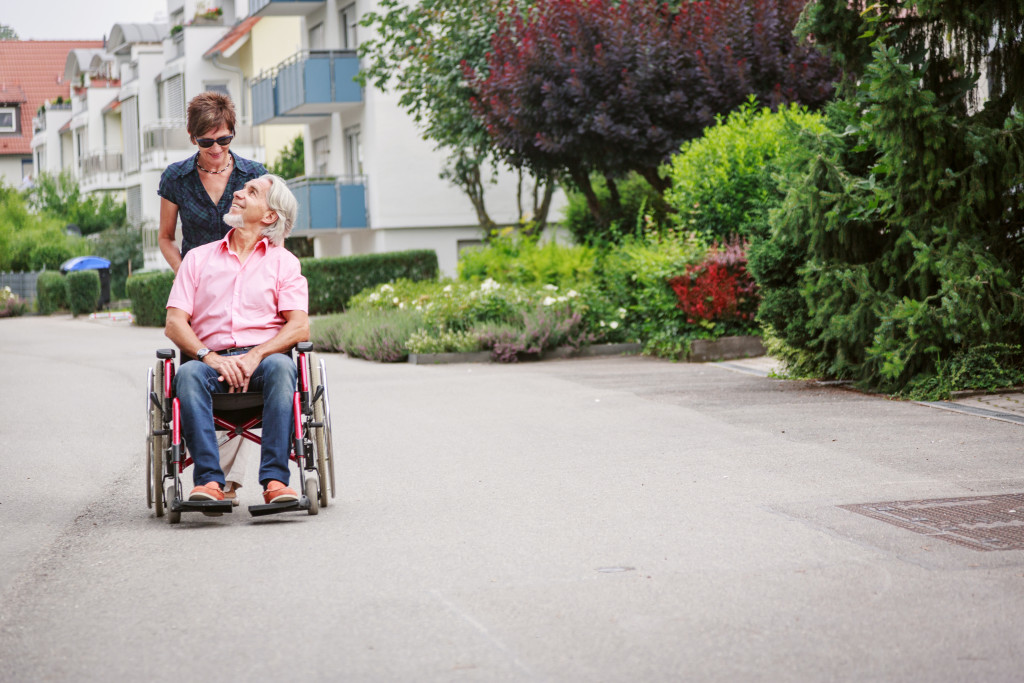Aging is a natural process of life. Most individuals are thankful for reaching old age, especially with all the blessings and happy memories to treasure. However, it can’t also be denied that old age comes with many challenges too. One of these is losing a sense of purpose, which can take a toll on their physical and mental health.
Older people who seem to have lost their sense of purpose feels like their knowledge, skills, and experience are not useful anymore. They also start to lose their self-esteem and even their sense of identity. In addition, there are so many outdated stereotypes about seniors that can worsen the problem. Continue reading to find out how you can help improve the quality of life for the elderly, especially your aging loved ones.
1. Recognize signs of depression
Depression is a typical struggle for many seniors. There can be many reasons for this like loss of independence, chronic illness, loss of employment, or a move to a retirement community. Depression should never be taken lightly. It’s not a natural part of aging too. If an elderly loved one seems depressed, you should encourage them to seek proper treatment.
Some of the signs to watch out for are irritability, feelings of hopelessness, fatigue, persistent sadness, difficulty focusing and sleeping, and loss of interest. When ignored, depression can take a toll on both emotional and physical health.

2. Promote time for hobbies
Picking up a hobby will always be a crucial element of healthy living. Hobbies are more than just fun pastimes. These purposeful activities can also improve the health of the elderly in terms of mood, creativity, and motivation. Plus, they can be a way for the elderly to connect with others who enjoy the same activity. Some amazing hobbies to consider are cooking, painting, knitting, writing, reading, and puzzles. If they are not physically active, introduce fitness activities such as sports or walking. They don’t need to engage in strenuous activities to reap the health benefits.
Senior citizens can stay fit with a 15 to 20-minute walk every day. Or, better yet, let them choose the activity they want to engage in. Senior citizens who reside in senior living communities often have more time to engage in such activities due to the maintenance-free living. However, if an old loved one is living in your home, you need to exert more effort into freeing their time for hobbies.
3. Ask them for help
You’ve read it right. You can help improve the quality of life of our aging loved ones by asking for their help. It can be as simple as asking for their help on easy tasks such as sorting out the mail, getting groceries, or teaching their grandkids homework. This enables them to keep their minds active and sharp. On top of that, you’re giving them a purpose by making them feel needed. You can make their lives more meaningful by encouraging them to participate in market research for diseases conducted by credible medical institutions.
Rare disease patient recruitment allows them to take part in something bigger, like participating in advocacies for seniors or developmental studies for diseases and their treatment. Studies suggest that seniors with a sense of purpose are less likely to have cognitive impairment, heart attacks, and strokes. Don’t make them feel like they’re a burden. Ask them to help in the way they want, and they can.
4. Encourage independence
Besides asking for their help, you can empower them more by helping them maintain independence. We highly suggest that you first ask your aging loved ones if they are open to an independent lifestyle. Forcing them into a choice they don’t want can lead to depression. If they welcome the idea, assist them in leading a more independent life.
For instance, you can provide them with a mobility scooter that they can use to travel on their own without having to wait for someone to stroll them outside. You can also get them their own smartphone and service that they can use to contact other family members and friends. Encourage them to find companionship instead of wallowing alone inside the house. With your help, they can stay happy and fit and go out there to continue exploring.
Senior care is an extensive subject, which requires great effort and preparation. But by taking these helpful steps, you can help make that better. You can help your aging loved ones face their problems without losing a sense of purpose and identity. You can empower them with the confidence and independence that they need to continue living the good life.
